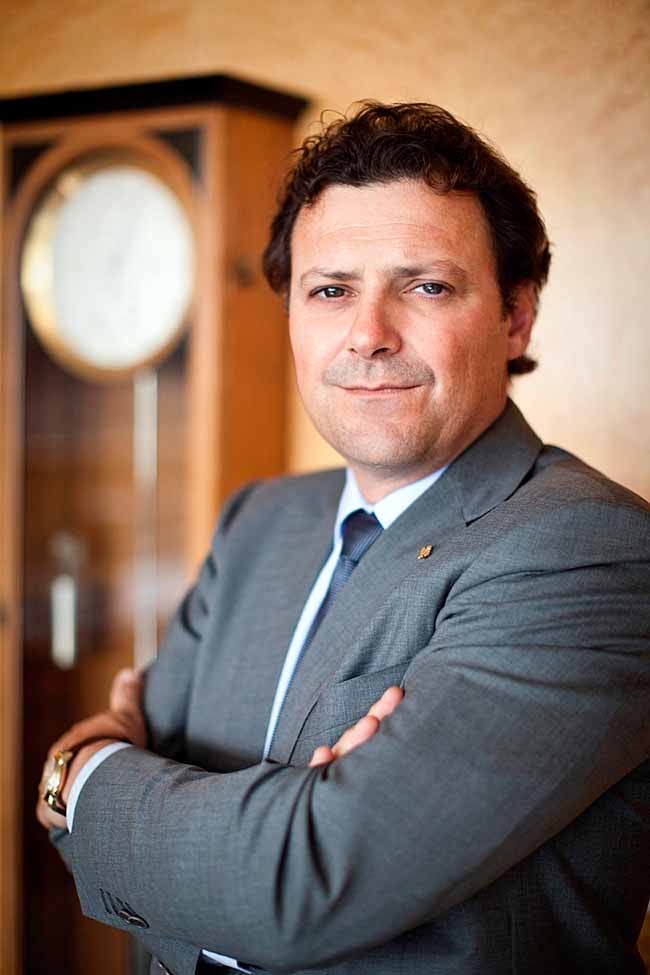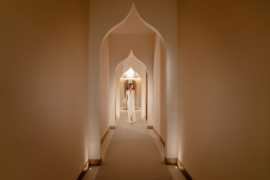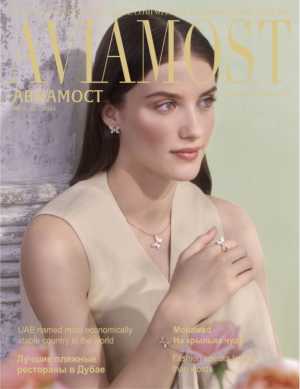Thierry Stern: Guardian of Patek Philippe
Автор admin Monday, 12 March 2012 7:15 AM

Thierry Stern: Guardian of Patek Philippe
While in Dubai for the celebration of recently held Watch Art Grand Exhibition, Aviamost was able to secure an exclusive interview with Thierry Stern, the fourth generation of President running the 170-year old watch company Patek Philippe. The man as sophisticated as the watches in his guardianship shared with us his challenges in continuing his family’s legacy, his vision of the future of Patek Philippe and, of course, his thoughts about the growing Chinese market.
Born in Geneva in 1970, Thierry is the son of Philippe Stern, Honorary President of Patek Philippe, and the grandson of Henri Stern (1911-2002), Honorary President until 2002. Since 1932, when Charles Stern acquired the watchmaking firm in Geneva, Patek Philippe has remained in the hands of the same family. Thierry represents today the fourth generation.
The man responsible for navigating this fine Swiss Watchmaking Company was exposed to virtually all aspects of the business, going from the watch-making workshops to the administrative offices at regular intervals, following the family tradition. Raised in the world of watch-making, he wanted to start at the very bottom and learn all the wheels of the trade. After his business studies at the Ecole de Commerce of Geneva, Thierry Stern enrolled in an accelerated program at the Watchmaking School of Geneva, during which he grew familiar with the secrets of watchmaking mechanics. Following this first introduction to the trade, Thierry Stern was ready to begin his training and career in the family business.
In almost two decades of working his way up in the corporate ladder, Thierry Stern took over the presidency of Patek Philippe from his father Philippe in August 2009. He was named President of Patek Philippe SA and Member of the Management Committee. The Management Committee is currently composed of Thierry Stern, President, Philippe Stern, Honorary President, and Claude Peny, Managing Director.
To begin, we’re quite interested to know when you first realized that you want to take part in the family business. Can you share with us the story?
I was six years old when I knew the first time that I wanted to make watches. I was actually in my father’s office at the time, and in his office drawer were around 10-15 pieces that he collected. When I was opened one the drawers – I still know the smell and color of the drawer – I saw these evening pocket watches, and right then I told him I wanted to make something like that. All I knew at that time was the passion I had in wanting to make watches; I didn’t know I had to take over Patek Philippe. Good thing though, I was never pushed by my father which is also the same thing that I do with my children. I believe that I should let them do what they enjoy. When I was young, my father would always ask me if this was what I wanted and he would just say that it’s going to happen when I’m ready. I never had any pressure from my family. That’s why in my children, I believe that before Patek Philippe, it is their happiness that is more important.
Since Patek Philippe has very rich history, has it really been a challenge continuing the legacy?
I would say that my biggest challenge today is to keep this history alive and to keep the know-how alive. The collectors of Patek Philippe they love to know what was happening in the past, people are expecting from us that we can explain the history of this movement, the line and to do that well we need to use new tools, for example today we have launched an application for iPad that we are using internally. We have to take thousands of photos and history paper in the archive and maintain them. In this way, I don’t need to tell our collectors to go to the basement to get the information they need.
As President of Patek Philippe, how similar or different are you from your father?
I don’t know if it’s really different. I have been working with father for more than 20 years, so I think you can say I’m a bit of a copycat from my father. Maybe the difference today is the way I work with technology. He never touched a computer. I’m all using computer today; I have to adapt myself to this. Otherwise, the philosophy, the spirit, the strategy my father was using with Patek was also the same that I’m using now. My father was also using as his father and his father was using the same as his father. So the strategy was never a problem in terms of family succession, we never put this on the table I don’t like the strategy let’s do something else. No it is always clear that it is an easy strategy to make the finest watches in the world, and that is what is really nice with Patek. It is easy and everybody understands that and they agree with that. Another difference perhaps is the in terms of style wherein I have my own style not only for the management but more on the product. The product my father was willing to wear may be not exactly the same I’m willing to wear like for example in terms of colors. My father would like simple white, and I might add some colors.
In terms of similarity, my father and I love travelling and meeting the retailers and clients. I guess this is a huge difference that Patek practices compared to other brands. Instead of staying in my building in Geneva, studying figures of which I can hire good people to do, I travel the world and meet the retailers and clients, I cannot hire someone representing the mentality of the brand; it is my duty to do that, and it is my responsibility to listen to them. So when I come back to Geneva, I can really have a nice talk with my team and tell them what we need to improve and how.
You have done a very beautiful exhibition here in Dubai. Any plans of taking this to China?
Once a year, we will choose city and do an exhibition and it will be Germany next year. China may be in the plans but we still have to see as we’ve not planned yet. We did a lot of exhibitions before, maybe not like this one, but very often we have smaller and bigger exhibitions. This one in Dubai is perhaps the biggest and the nicest one. They expected to see watches but they got surprised to see the inside of Patek Philippe. This is what we wanted to share, to welcome them in our home, show them live and work, and give them the feeling that we are serious company. We are not selling watches in this exhibition. It is done to exhibit our history and know-how as Patek Philippe.
Last question – the growing demand for luxury products is very obvious in China. May we ask on what do you think of the Chinese market?
The Chinese market is totally different. We are talking about 1 billion people in the world, so the demand is huge. Of course not 1 billion people can afford to have a Patek but already today if you have 1% willing to have it then that’s really huge. At one point it is fantastic but I think it’s also dangerous. The demand is too high and I believe for Patek it is very dangerous to work only in one market. In Patek, we know based on our history that we should not put all our eggs in one basket.
China, for me, is new market. Sadly, we cannot give them enough watches. We have only 45,000 watches every year in production. Without China, everything is already sold. Now, we have 2 stores in China – one in Beijing and one in Shanghai. And, I decided not to open more stores. Because, I believe it is more important to have showroom to show to Chinese clients who we are and to train Chinese to become watchmakers. A lot of Chinese come to Dubai, Geneva, Milan, to name a few, and that is where they shop. My concern is when they buy they come back to China and they have a problem with the watch, what will happen? So I believe the right way for Patek is to build a good after sales service so when they are in China they can come and fix their watches. This is real luxury. Everyone claims luxury but the real luxury is the gift of service to your clients which should be long-term. That’s why I am building small school for Chinese watchmakers in Shanghai, and train them according to our Swiss know-how.




























Добавить комментарий